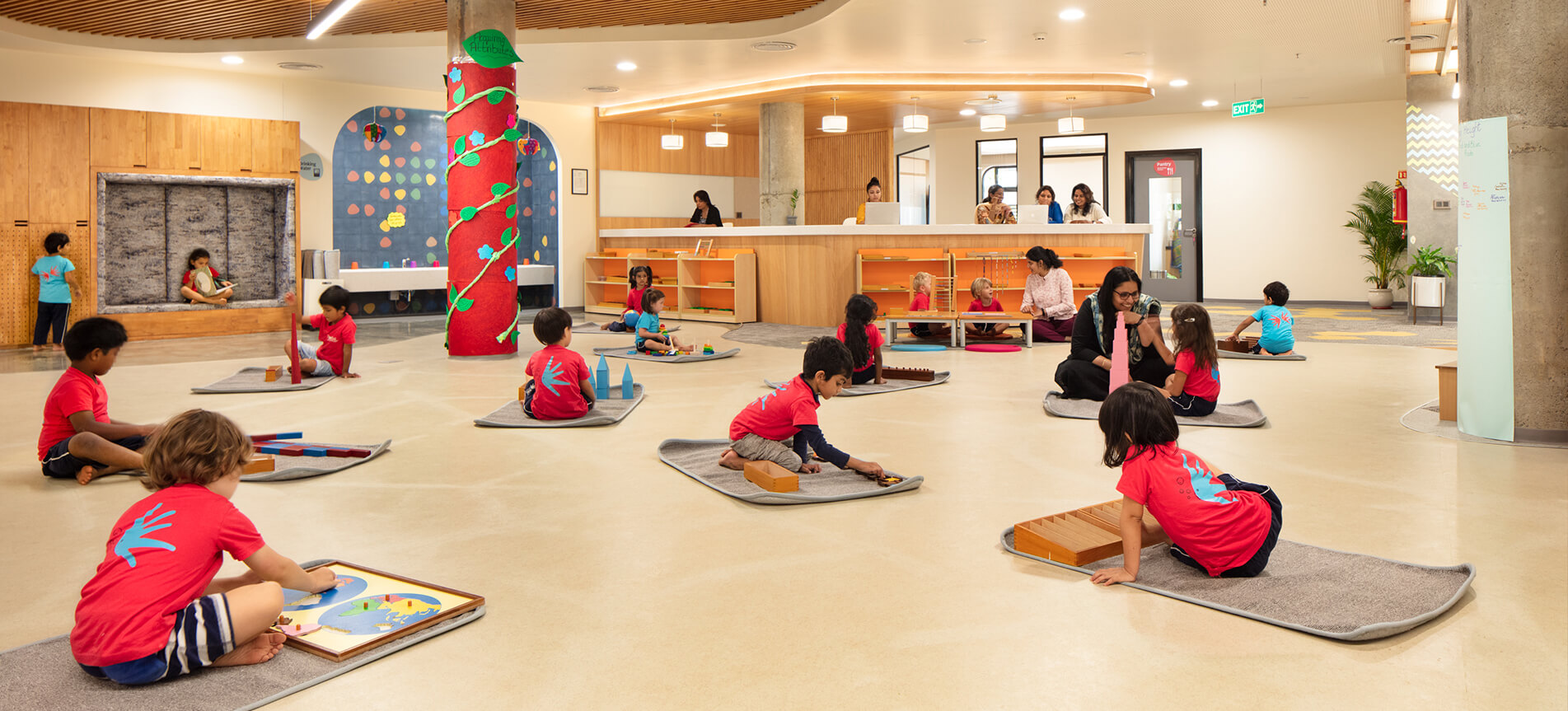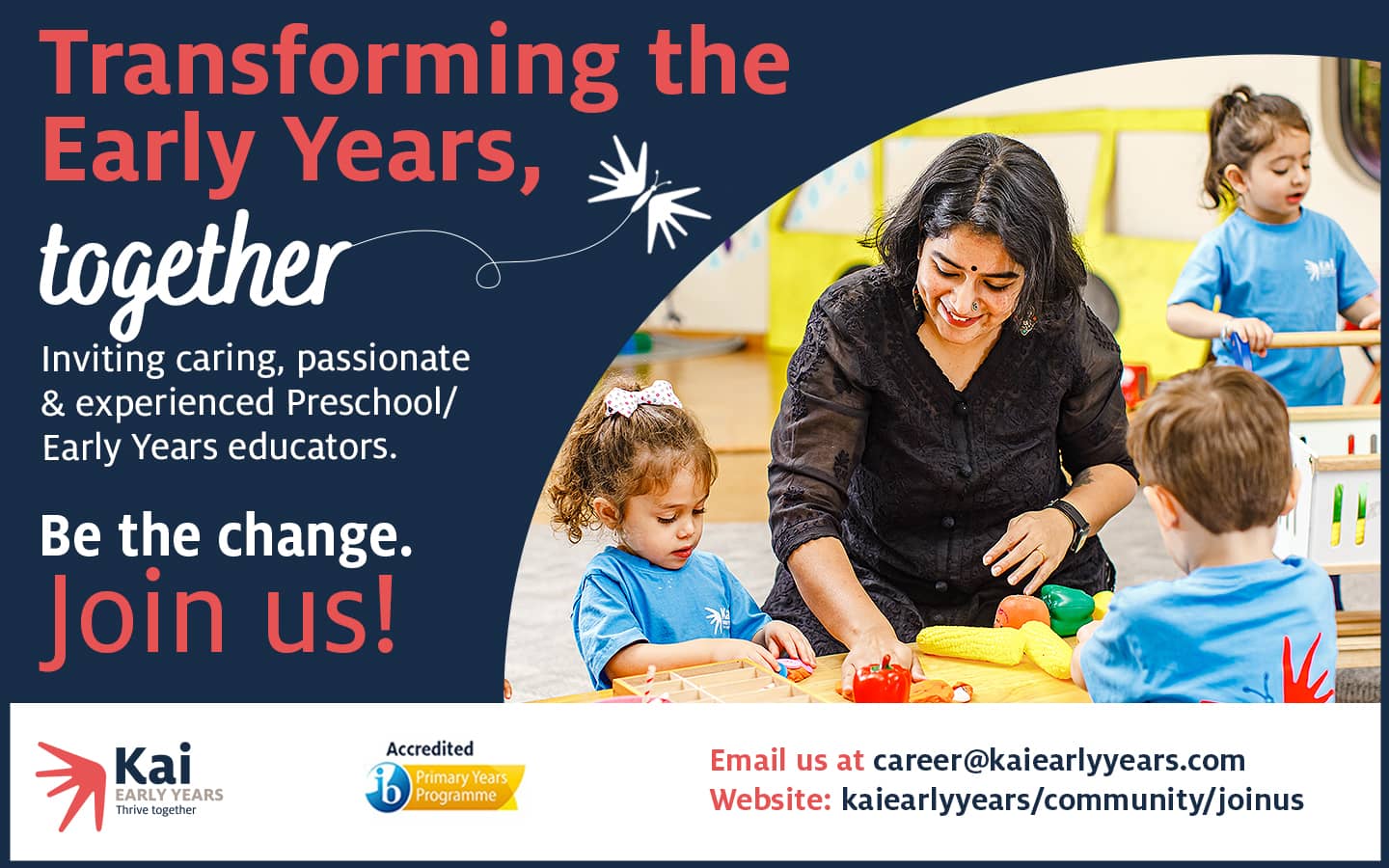Personal, Social and Emotional Development
Personal, social and emotional development is the basis of every child’s development. It helps children develop a positive attitude about themselves and towards others. This in turn enables them to interact effectively with others.
Building self-confidence and self-awareness are some of the prime requirements in the development of children. Once they are confident to express themselves, to try new things, they will be more confident to speak, interact, and try to explore more and become risk-takers and lifelong learners.
Children begin to grow as communicators and talk about their feelings, behavior and begin to understand consequences. This growth is all part of their all-round development which aids in making them secure and stable in society.
They start playing cooperatively, learn to take turns, share and consciously start making efforts to maintain relationships. They begin to build social interactions, show sensitivity to other’s needs and feelings, and start forming positive relationships with children and adults.
At school, it is important, we make preschoolers feel secure in the setting. The mixed-age activities available to the children in a Montessori classroom are designed to allow children to build on their social interactions. When children work in this way, they increase their level of independence and realize how their actions benefit others. The learner profile and approaches to learning are important aspects of the IB curriculum that support the well-being and overall development of children. More on the learner profile can be found at www.ibo.org.
During school time, we encourage the following and recommend parents to reiterate the same;-
- Routines reassure children, they begin to understand the structure of their day and can predict what’s next, this gives them a sense of familiarity and control.
- Children need to learn to recognize their feelings and learn the words to label them. Adults in their environment can help children to do this and show them ways to manage their feelings.
- Positive reinforcement focuses on the behavior that is acceptable. This reinforcement and role modeling positive behavior helps children demonstrate more of the wanted behaviors
- Communicating with children is important- Listening to them, talking to them makes them feel heard and valued. Even the youngest of children enjoy listening to the voices of those near them
- Encourage independence and empowerment. As soon as children are capable they can perform age-appropriate tasks. Give them some time to master each skill and constantly praise them on their achievements.
- Provide them time and opportunities to interact with peers
The human being is a united whole, but this unity has to be built up and formed by active experiences in the real world, to which it is led by the laws of nature.” –Dr Maria Montessori

